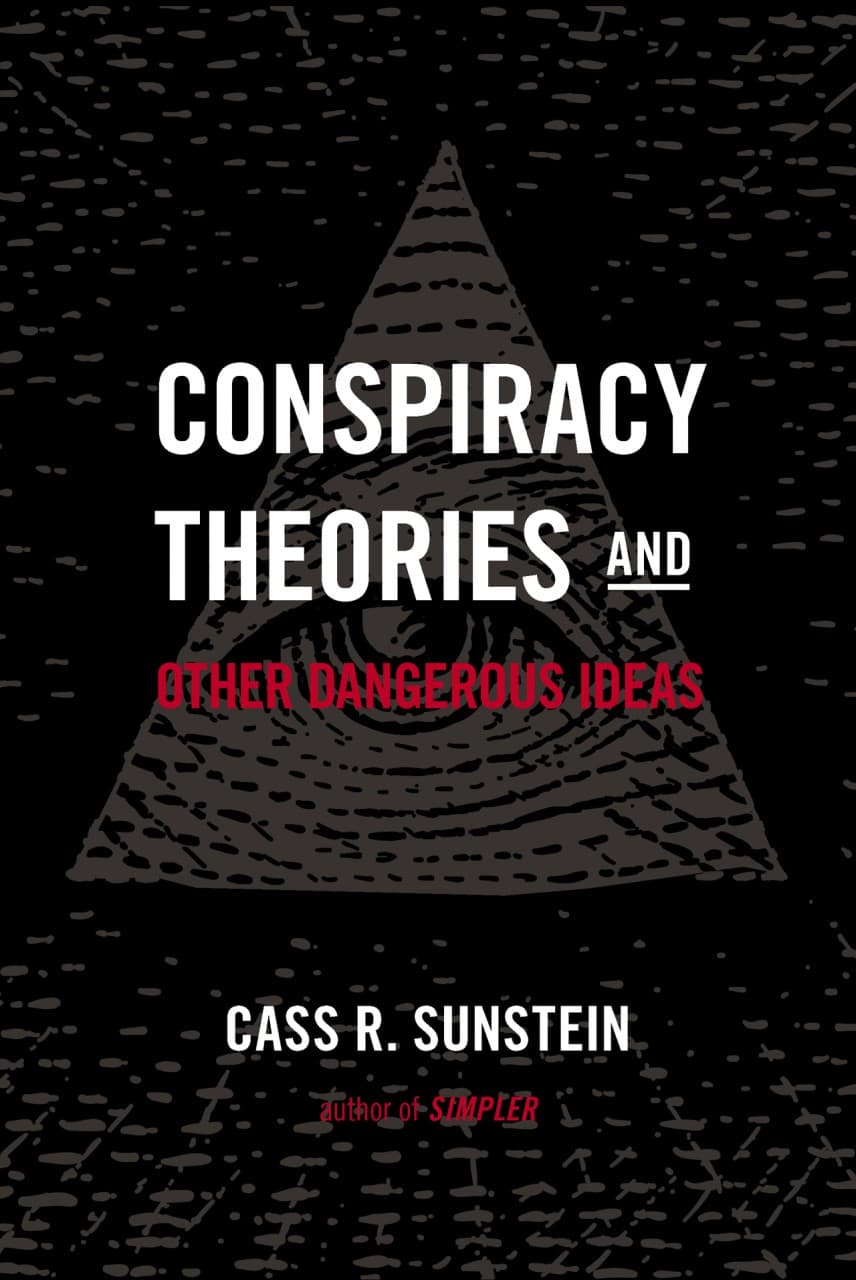Advertisement
Cass Sunstein On Conspiracy Theories
Harvard law professor Cass Sunstein says pick your topic — the tragic disappearance of the Malaysian plane, Ukraine, the NSA, the economic crisis, even the authorship of Shakespeare's plays — and you can find a conspiracy theory.
Sunstein himself has faced hate mail and threats after his time in the Obama White House, and for his articles on topics such as FDR and the rights of animals. Glenn Beck repeatedly described him as "the most dangerous man in America."
The experience has led Sunstein to take a deeper look at the topics, including why apparently rational people can believe in crazy conspiracies. He writes in Bloomberg:
Remarkably, people who accept one conspiracy theory tend to accept another conspiracy theory that is logically inconsistent with it. People who believe that Princess Diana faked her own death are more likely to think that she was murdered. People who believe that Osama bin Laden was already dead when U.S. forces invaded his compound are more likely to believe that he is still alive.
Conspiracy theories, says Sunstein, can lead to violence, but they can also be harmless, such as the popular belief of children that a secret group of elves make presents that the mysterious "Santa Claus" distributes on Christmas Eve.
He joins Here & Now's Robin Young to discuss why "rational people end up believing crazy things," as he writes in his new book "Conspiracy Theories and Other Dangerous Ideas" (excerpt below).
Read More
Book Excerpt: 'Conspiracy Theories'
By Cass R. Sunstein

Preface
Why do intelligent people believe conspiracy theories, even when they are utterly baseless? Why does false information spread and sometimes incite violence? What rights do human beings have? Do we have a right to education or health care? What makes people happy? Do animals have rights? Is there a right to marriage? If so, who gets to marry? Does the United States owe poor nations compensation for climate change? Amidst the most fundamental disagreements— not least on these questions—how can we proceed?
And just who are minimalists and trimmers, anyway?
Of the hundreds of academic articles I have written, the most controversial appear in these pages. Academic articles do not usually get a lot of attention, but many of the chapters here escaped anonymity. Some of them even achieved a modest degree of public notoriety. One reason is that on dozens of occasions, Glenn Beck, the television and radio personality, described me on national television as “the most dangerous man in America”—apparently because of the essays here, especially those involving Franklin Delano Roosevelt, conspiracy theories, and the rights of animals. I don’t know how many people actually read those papers, but I do know that they helped produce a lot of hate mail (and a few death threats).
Advertisement
The unexpected notoriety was a product of the fact that from 2009 to 2012, I was privileged to serve as the administrator of the White House Office of Information and Regulatory Affairs (OIRA). The OIRA administrator is often called the nation’s “regulatory czar,” and while the United States has no czars, the administrator does have a good deal of authority. To get that particular job, you have to be nominated by the president and confirmed by the Senate. At least in the current period, the writings of Senate-confirmed presidential appointees are subject to intense scrutiny. And if someone with a lot of writing is fortunate enough to be confirmed, the scrutiny is likely to continue, certainly while he serves, and perhaps even after. I didn’t quite anticipate this. I certainly didn’t anticipate the degree of animosity that would be generated by some of the articles in this book.
In many nations, rational people end up believing crazy things, including (false) conspiracy theories. Those crazy thoughts can lead to violence, including terrorism. Many terrorist acts have been fueled by false conspiracy theories, and there is a good argument that some such acts would not have occurred in the absence of such theories. The key point—and, in a way, the most puzzling and disturbing one—is that the crazy thoughts are often held by people who are not crazy at all.
The essay on conspiracy theories was written in the aftermath of the attacks of 9/11, but the lessons are far more general. It was originally coauthored with Harvard law professor Adrian Vermeule, but it has been significantly revised and updated for this book. The focus is on threats—especially terrorist threats—that arise when people in other nations believe false conspiracy theories about the United States. Its central goal is to explore how information tends to spread, even to go viral, among like-minded people. And while some people think that the topic of conspiracy theories is narrow and specialized, the discussion bears on the spread of false information of many different kinds, not least in the internet era.
Excerpted from the book CONSPIRACY THEORIES AND OTHER DANGEROUS IDEAS by Cass R. Sunstein. Copyright © 2014 by Cass Sunstein. Excerpted with permission by Simon & Schuster, a Division of Simon & Schuster, Inc.
Guest
- Cass Sunstein, Harvard professor and founder and director of the Program on Behavioral Economics and Public Policy at Harvard Law School. He was the Administrator of the White House Office of Information and Regulatory Affairs in the Obama administration from 2009 to 2012. He tweets @CassSunstein.
This segment aired on April 2, 2014.